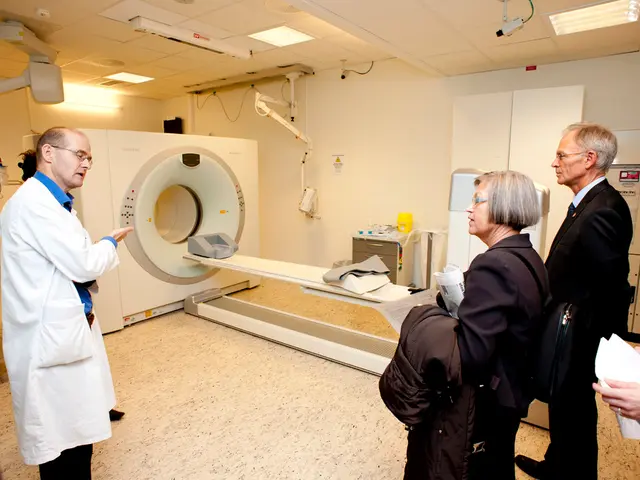Healthcare Facilities Facing Mounting Financial Setbacks
Hey there! Let's dive into the financial woes of German hospitals, shall we? According to a recent survey, the economic situation for these essential healthcare providers is as dismal as it's been in twenty years. Here's the lowdown.
A staggering 61% of hospitals surveyed reported losses in 2023, while only 9% reported a balanced result. The remaining 30% managed to eke out a surplus. The pessimism hasn't waned in 2024, with 79% expecting more losses, 11% anticipating a balanced result, and merely 10% forecasting a surplus.
This grim news comes from a survey conducted by the German Hospital Association (DKG) and others. The survey, which is published annually, paints a picture far bleaker than anything seen since 2003. A staggering 64% of hospitals surveyed reported a decline in their annual result.
So, what's driving this crisis? Two main culprits: increasing personnel and material costs and a lack of investment promotion. Gerald Gaß, the chairman of the DKG, criticized this latter issue. He pointed out that hospitals, like all other sectors, are grappling with increased expenses due to inflation, but they can't independently adjust their prices to match it.
The German Social Association described the numbers as alarming. Their chairwoman, Michaela Engelmeier, praised the recently passed hospital reform as a positive step, but stressed that more action is necessary.
The survey, known as the "Hospital Barometer," was created by the German Hospital Institute, which boasts the support of the DKG. The results were based on a representative survey of general hospitals with at least 100 beds. A total of 366 hospitals participated in the survey, which was conducted between mid-May and mid-August.
Now, let's dive a little deeper into the systemic issues at play here. For starters, hospitals are dealing with underfunded capital investments. The German states provide less than half of the €7 billion annual investment needs, causing delays in critical infrastructure and sustainability upgrades. These funding gaps hinder energy efficiency projects that could save large hospitals upwards of €3 million per year in operational costs.
An aging population is another major challenge, as it increases care demands while reducing the working-age population contributing to public health insurance funds. By 2050, insurance contributions could rise to 25-32% of gross salaries.
Operational inefficiencies are also a significant issue. The healthcare supply chain management sector is facing pressure from the adoption costs of AI/cloud technologies and the integration with legacy systems. At the same time, hospitals report rising costs from supply bottlenecks and staffing challenges.
Sustainability implementation costs are another roadblock. Hospitals struggle with upfront investments for green initiatives, like EV infrastructure, despite demonstrating long-term savings potential.
Pharmaceutical expenditure remains another significant issue, with drugs accounting for nearly half of total hospital sector costs. Price containment measures are necessary to keep these costs in check.
These systemic issues align with broader trends reported in KPMG's 2025 Healthcare Barometer, which cites "rising costs, demographic change, and financial restrictions" as persistent challenges. The lack of coordinated federal-state funding mechanisms exacerbates these pressures.
In conclusion, the financial crisis facing German hospitals is a complex, systemic issue that requires coordinated efforts to address. The ongoing struggles with underfunded capital investments, operational inefficiencies, staffing challenges, and rising pharmaceutical costs paint a dire picture for these essential healthcare providers. But fear not, for change is on the horizon, and it's up to us to keep pushing for a better, healthier future.
- The financial crisis in German hospitals, as dismal as it's been in twenty years, is primarily driven by increasing personnel and material costs and a lack of investment promotion, according to the German Hospital Association (DKG).
- The survey, known as the "Hospital Barometer," reveals that 61% of hospitals surveyed reported losses in 2023, with an alarming 79% expecting more losses in 2024.
- The underfunded capital investments are causing delays in critical infrastructure and sustainability upgrades, which could save large hospitals up to €3 million per year in operational costs.
- In the long run, hospitals face sustainability implementation costs, such as upfront investments for green initiatives like EV infrastructure, despite their potential for long-term savings.
- Pharmaceutical expenditure, accounting for nearly half of total hospital sector costs, is another significant issue that requires price containment measures to keep costs in check.








